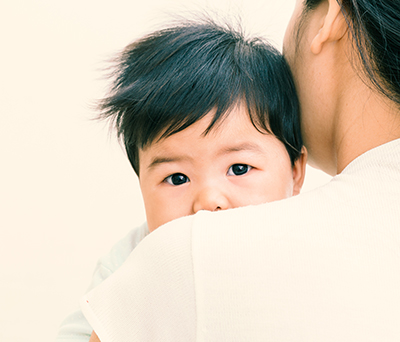
You thought your baby’s runny nose and cough were just a cold. But after the first week, you noticed she was having trouble breathing, seemed lethargic and there were no tears when she cried. You immediately took her into your pediatrician’s office and the diagnosis was RSV, or respiratory syncytial virus, a common, and very contagious virus.
Maria Ganninger, MD, pediatrician with Arch Pediatrics – Washington University Clinical Associates explains, “RSV is a viral illness that can affect babies and children, it occurs most often in the winter and early spring months. In most cases of RSV, the infection causes nothing more than a cold. But for some children, it can lead to a severe respiratory disease.
As the disease progresses, the illness may move into the lungs with coughing and wheezing. RSV is the most common cause of pneumonia in babies. Because the symptoms of RSV can be similar to other illnesses, see your pediatrician for an accurate diagnosis.”
Common RSV symptoms
- Runny nose
- Fever
- Cough
- Shortness of breath
- Trouble eating and drinking
- Wheezing
- Rapid breathing
- Listlessness
- Dehydration
Treatment
Because antibiotics only work for bacterial infections, they are not helpful for RSV. For most babies and young children, at-home treatment is enough to help ease RSV symptoms. Treatment includes:
- Plenty of fluids – make sure your child drinks small amounts throughout the day
- Cool-mist vaporizer – the moist air makes breathing easier
- Non-aspirin fever-reducers – check with doctor for correct dose
- Suction sticky nasal fluids with a bulb syringe
Babies with more severe cases may need a hospital stay where they can receive oxygen, IV fluids and medications to open the airways.
Prevention
Dr. Ganninger says, “There are some steps to prevent RSV. Wash your hands often and always insist people wash their hands before touching your baby. Keep your baby away from crowds and from anyone with cold symptoms. Don’t let anyone smoke around your baby. If possible, don’t send child to daycare during his or her first winter season.
Do not hesitate to call your pediatrician if your child has symptoms that don’t get better, symptoms that get worse, or new symptoms.”
Learn more about RSV here or call 314-525-0580 to make an appointment with Dr. Ganninger or another pediatrician at Arch Pediatrics.
Arch Pediatrics
3844 S. Lindbergh, Suite 216
St. Louis, MO 63127